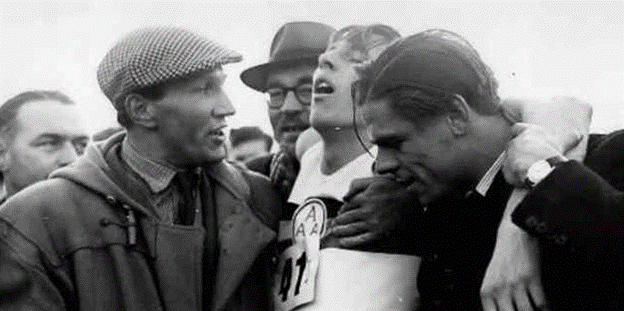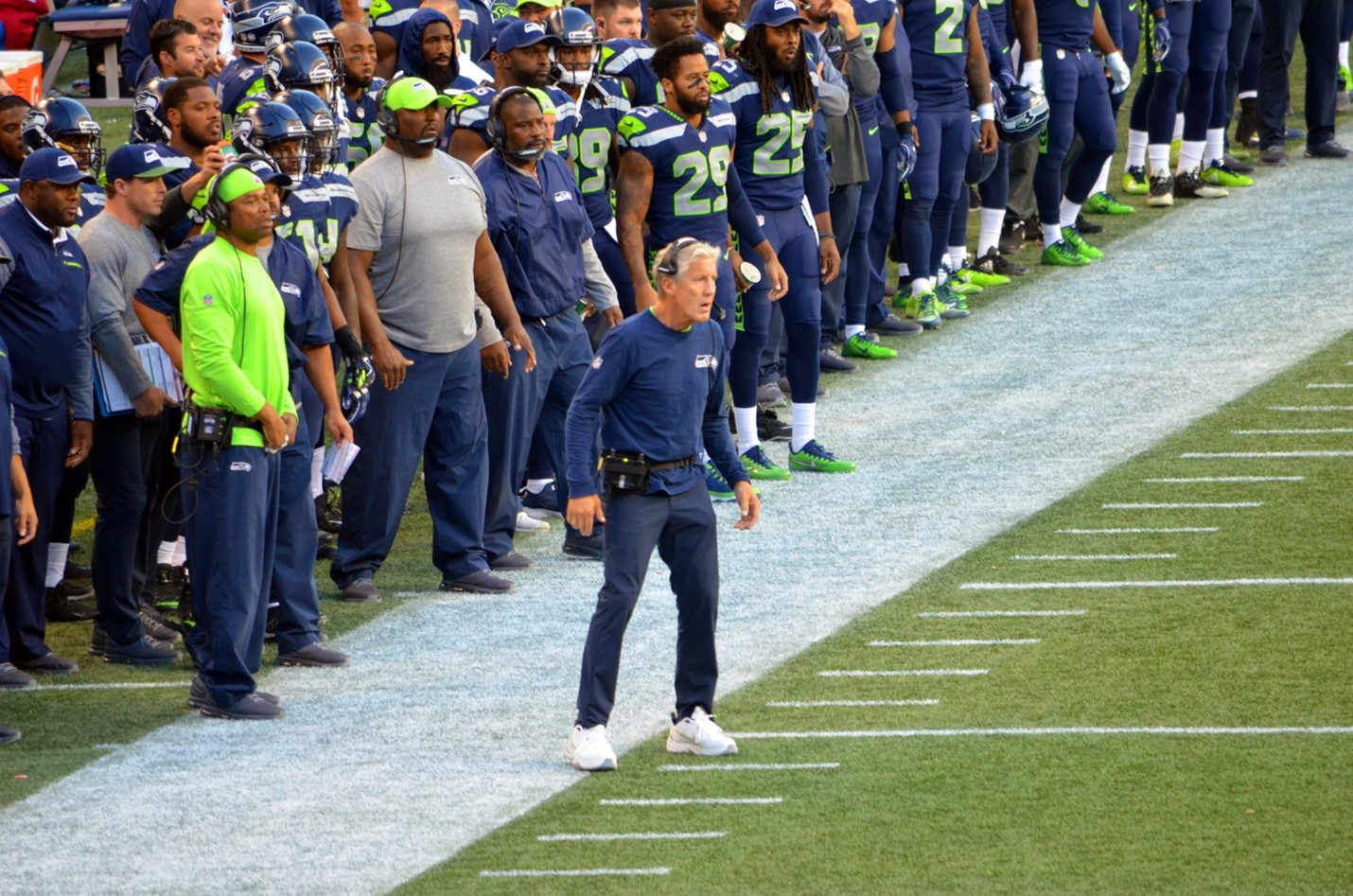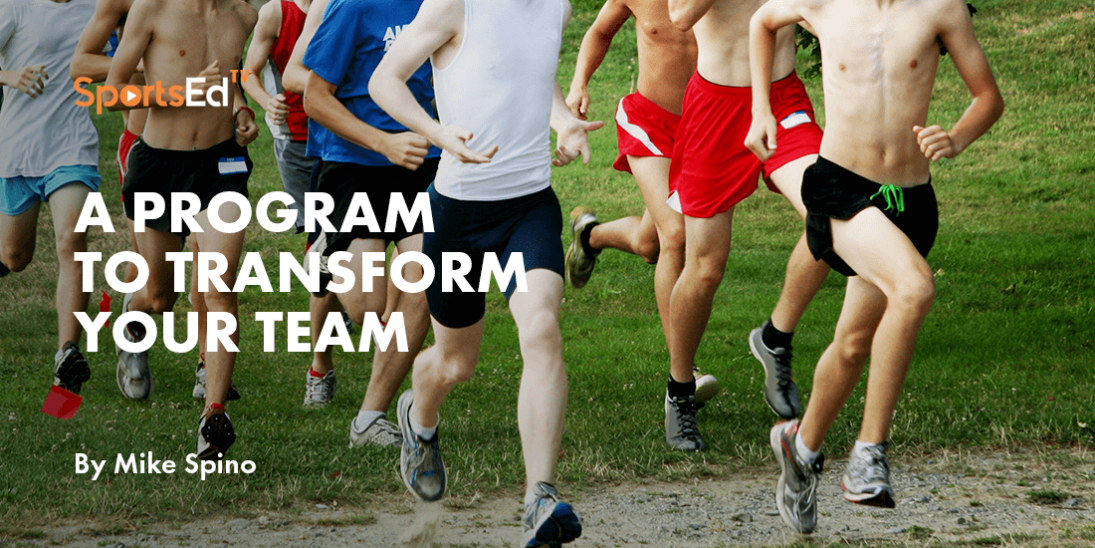Mental Health, Running
Welcome and thanks for visiting...

The Coach of the Future

The last article I wrote was entitled the “The Athlete of the future”. Therefore, this follow-up, “the Coach of the Future”, is intended to capture a view of how athlete and coach could function harmoniously and futuristically together during the next upcoming period of sports.
Hopefully, the athlete and coach will meet in positive circumstances to fulfill each other’s objectives, dreams, and ambitions in a compatible way. It won’t be as easy as it might first appear, the world is dramatically changing, and both want different experiences than they might of in the past.
Will the hugs and congratulations of the past be similar, or will many want to have different objectives, perhaps more spiritual or technical abilities?
The question requires a different approach perhaps.
Will we play solely to be more successful in our craft or perhaps crave different results besides won and lost records, and championship medals. How deeply do we want more and is it an age that future coaches present the new techniques? Many studies have been done which show even young children being mindful. Therefore, it seems appropriate for coaches to teach the finer techniques of mental training. They will respond favorably. Even young people may want fuller, deeper meaning to games played. Or do we simply want to find better ways to win games and championships?
All our backgrounds have a similar tread- experiencing sport in our initial time period.
Every person involved in youth sports remembers their most influential community coach while growing up. This significant coach had great meaning for each athlete’s journey. He or she is remembered for fear and intimidation or with fondness and a warm glow. For the majority of young people first experiences are positive memories that can be carried through a lifetime.
My coach, Australian legend Percy Cerutty, has talked frequently about the “way shower” who appears precisely when the athlete is seeking. There are many good examples of this union and bonding.
The anthropologist Margaret Mead has said that small groups of people are always at the core of history’s greatest breakthroughs. She adds there is no other way for this to happen, so what are some examples of this phenomenon in sporting history. For instance, Sweden was neutral in WWII and Arne Anderson and Gunder Haegg training under Gosta Holmer almost ran the first 4-minute mile in this tumultuous war period.
However, it took another additional decade when a different small group of athletes under coach Franz Stampfl led by Roger Bannister, Chris Brasher, and Chris Chattaway broke the barrier during England's post-war enthusiasm. In the first version of my book, Beyond Jogging: the interspaces of running, the cover was of Brasher at halfway into the mile. The premise is that if one could just live in the next two minutes, as on the Grecian Urn, time would stand still and a peaceful melancholy would surround itself, lived over and again in a pleasant struggle and satisfaction of hard battle and bliss. Further Hillary climbed Mount Everest in this same period then the might of the British Empire reigned supreme.
How will the coach of the future emerge and what will be his/her demeanor and character?
The image of the tough, whistle-around-the-neck coach employing fear and intimidation tactics will hopefully be fading in the decades ahead. As more scientific coaches, and motivation-oriented coaches, who have the tools to instill confidence in their charges, will come to the surface. Sixty years ago, when I was a championship athlete in a school that didn't have cross country, a person, a coach emerged as I was ready for the “way shower.” My small town didn't have a cross-country team however a person in the community came forward committing himself to my success. Often, like in this situation, I don't remember where we met or how the relationship began: however as Percy predicted, the person somehow emerges when the time is right.
Will assisted devices help or blunt the inspired coach?
Then there is the question of assisted devices, there are many on the market that give detailed instructions on paces run, and even particular sites. I know of at least one prominent coach who has threatened to throw the devices out the window citing that they minimize the coach's ability to decipher movement such as reserve power as an observation of their viewpoint. I believe working with these devices is an option just that they are not the end-all for coaching choices.

I have been a running coach for almost fifty years, and cherish my friendships and relations. I've coached world-class athletes and youngsters and learned something from all of them. The examples of the illustrious coaches are substantial What comes first to mind is Joe Newton, who coached high school in Illinois, and even because of his good vibes even Sebastian Coe stayed with him to train before his gold medal in the 84 Olympics. He had over 100 young kids come out for cross country each year, and he would give every one of them a nickname, which is something I have also done over the years
On the big stage, there are coaches like Phil Jackson who take a Zen approach to coaching. With the egos of the star NBA basketball players, he would often not intervene in a personal conflict and however observe and work through the relationships on the team and intervene indirectly by pinpointing a trusted and popular person within the team and working through him to reintegrate the team together.

The enthusiasm of football coach Pete Carrol is an inspiration. As the oldest coach in the NFL, there is no one more energetic. How does one maintain that level of fervor, loving the game and caring for each person on the team, and figuring out who should play together? So, in our modern age, what are the primary characteristics of the coach of the future. First of all, he/she will have the athlete’s whole self as their main interest. Athletes may disappoint or be difficult but the long-term welfare of each is the end goal for the humane and trustworthy coach We want and will win with the caring approach, however, sometimes the victory is from a different perspective- the overall perspective of the coach. Basketball coach Bobby Knight of Indiana created national champions, however, he did it with abuse and sarcasm. Eventually, his best players left him with a bitter taste in their mouths. This is not distinctive of our futuristic coach.
As a college coach, I won many cross country and track national championships, and have been elected to the hall of fame as an athlete and coach, and the memories of the relations with the students who come back to see you on occasion are highly cherished. There is nothing more satisfying than a player who returns in his maturity and tells you he learned a vital lesson from your teaching—it is the pinnacle of success as a coach, and makes all the hours on the field in the rain and cold worth it.
Memories in my Elder years
After 50 years of coaching that went by ever so quickly, there are several situations between the coach and player that live on in my mind. The camaraderie of my neighborhood in Lyndhurst, New Jersey to which I dedicated my first book. My college roommate, Marty Miller taught me how to study and promoted a love of reading in my mind. The community coach, Jerry McCann, who emerged from nowhere, and as a Percy described "way shower cared" deeply about me. Discovering that my coach Percy Cerutty (of which I have his last diploma as a coach), was completely authentic and left a mark on me that lasted forever. Especially memorable is coaching my first athlete, Michael Murphy, the founder of Esalen Institute to national running senior prominence, and taught me the meaning of meditation and internal observation. Leslie Chaplin was breaking many senior records and winning the over 50 world championships. My high school coach, Frank Ruggierio one who did the calisthenics with even a gym class and told me to shoot, and if I missed it was on him. Or as a skinny wing back in football when the quarterback made the sign of the cross when calling my play. My dear mother who would come up to the track to time me, drive me to cross country and track meets, and put no pressure on me to perform. Flying along when really in shape with a friend doing 220’s, the early years of my marriage with Priscilla Randall, having two beautiful children and when she could dance on stage with Sammy Davis, and I was in my budding years of coaching at Georgia Tech.
Nothing can be quite remembered as the camaraderie of a team or watching a great athlete go beyond him/herself to perform way above their potential. The first time to go to a professional game, especially as a youth in New York City during baseball season in the early 50s and "feel the crowd". In New York we used to suspend school and watch the world series in class such was the passion of our devotion. These thoughts to never forget who provide wonderful sports memories as a senior looking back on his life in sports performance and coaching.





